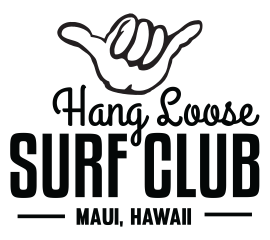Learn About Maui's Surf History
The art of surfing — known as he’enalu or “wave sliding” in the Hawaiian language — is central to Polynesian culture and predates European contact. For Ancient Hawaiians, it wasn’t just a mere sport or recreational activity. Instead, it was integrated into daily life and culture.
Before entering the ocean, a priest would aid surfers in undertaking the spiritual ceremony of constructing a surfboard. They would carefully select a tree, including koa, ‘ulu and wiliwili trees, and select craftsmen would shape, stain, and prepare the board. There were three primary shapes: the ‘olo, kikio ‘o, and the alaia.
The most skilled surfers were often of the upper class or pastors, including chiefs and warriors who surfed the best waves on the island. It was through their ability to master the waves that they gained respect.
Around the beginning of the 20th century, Hawaiians close to Waikiki revived surfing and re-established it as a sport. Duke Kahanamoku, “Ambassador of Aloha,” Olympic medalist and avid surfer, helped expose it to the world. People have been flocking to Hawaii to experience surfing ever since!
